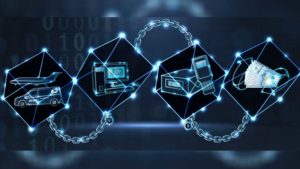-
What is a digital identity?
According to Eric Stoller (University of Derby), digital identity is a concept based on internet, which consists of all available information on a person or organization from the network community . A person or organization may have different digital identities in different communities. These digital identities are composed of some characteristics or digital attributes. For example, a person is a military enthusiast as a Twitter user while in Instagram, his tag is “animal protector” who always posts some endangered animal. A digital identity may also be associated with other digital identities, such as e-mail. Although these identity-related attributes can help determine a person’s identity to a certain extent, these attributes can be changed, hidden, or even discarded. Some people show completely different personalities on the Internet and actual life. As digital identities gradually become people’s identity marks on the Internet, more and more experts focus on the authenticity, security, and confirmation of digital identities. Therefore, the technical characteristics of blockchain such as distributed storage, tamper-proofing, traceability and asymmetric encryption provide new solutions for identity authentication and information protection (Takemiya&Vanieiev, 2018).
-
How do personal versus professional approaches to digital identity affect social media use?
Professional identities on social media shows employee or organization’s work-related experience while personal account focus on private life including personal interests. A doctor will only post medial knowledge and stories happened in the hospital on professional account and share happy time with family on personal account (Mahboob et al., 2019). However, in my opinion, personal and professional approaches to digital identity are not isolated. Many people open two accounts in the social media platform such as Facebook for different purpose. However, even though you and your colleagues only follow each other on professional accounts, they may still find your personal account through related users or keywords. Many employers also consider employees’ hobbies and passions outside of work when recruiting. In fact, 34% of employers check their candidates’ profiles on social media, not just LinkedIn and GOOGLE+ (Smith, 2013). During the 2012 presidential debate, a manager of the KitchenAid social media teams suddenly posted offensive tweets about President Obama from KitchenAid’s Twitter account (over 24000 followers) instead of his own (Kuhl, 2013). In today’s internet world, there is not much distinction between personal and professional accounts on social media. Obviously professional accounts are more official and have more restrictions, but it is not appropriate to post extreme or offensive comments on personal accounts either.
-
How do digital identities converge in networked publics – what are the impacts and/or benefits?
The emergence of digital identity is profoundly changing the way of economy and society. Compared with traditional identity systems, it will greatly improve the overall social efficiency, maximize the release of user value, and benefit governments, service providers, users and other parties. For example, China has issued an electronic ID card. When the physical ID card is lost, people do not need to reissue it immediately. They can take a flight or train by electric ID card. At first, digital identity was just a vague concept that people identify the user’s special character according to an account of social media. With the development of technology and the security of network information, people can use digital identities such as email to book tickets and communicate with the government. Now, the service provider can use the user identity information recorded in the system to customize products and services based on user attributes and purposes. Also, the content published by professional identities on social media platform show the business or organization’s value and target. I believe that the application of digital identities in the future will become more popular and more secure with the popularity of the Internet and the development of advanced technologies.

photo copyright@ Blockchain has found application in cybersecurity. (Image Source: Sociable)
Reference
Takemiya, M., & Vanieiev, B. (2018). Sora identity: Secure, digital identity on the blockchain. Paper presented at the, 2 582-587. doi:10.1109/COMPSAC.2018.10299
Mahboob, U., Jawed, S., & Yasmeen, R. (2019). Digital professional identity: Dear internet! Who am I? Education for Health, 32(1), 33. doi:10.4103/efh.efh_232_17
Smith, J (2013). How Social Media Can Help (Or Hurt) You In Your Job Search. Forbes. Retrieved from: https://www.forbes.com/sites/jacquelynsmith/2013/04/16/how-social-media-can-help-or-hurt-your-job-search/#73e459c87ae2
Kuhl, J. (2013). Social media rules. State Legislatures, 39(6), 30.
Hello Mike,
I really enjoy reading your blog post! It’s clear and organized. I think the examples that you shared in your post are quite effective and useful. I agree that with the rapid development of online technology, an increasing number of people begin to pay more attention to their online security of digital identities. I am wondering if you have read this web article about Digital Identity and Security:
https://newsroom.interac.ca/digital-id-and-security/
Also, from your post, I noticed that you mentioned the importance of using separated accounts on social media tools based on different purposes. In my post, I also talk about this point and I think it is necessary and important for people to know how to find a balance between their personal and professional approaches to digital identities.
Chunlin